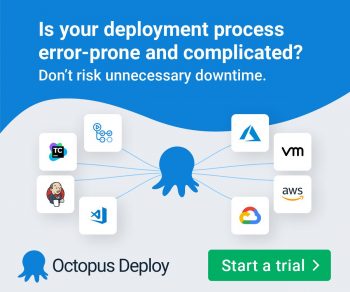The pressure is mounting for companies to ramp up their sustainability efforts, and the supply chain is a hotspot for environmental and social impact. Developing procurement and supply chain management professionals’ skills and capabilities in environmental, social, and governance (ESG) is a surefire way to enhance business productivity and sustainability.
Existing and upcoming regulatory requirements mean senior business leaders have to rethink their approach to value chain management. The European Union’s Non-Financial Reporting Directive already requires mandatory sustainability reporting for large companies, and the European Commission is expected to release additional sustainable corporate governance legislation shortly. The United States Securities and Exchange Commission (SEC) is not far behind. The SEC is expected to follow suit this year with its own climate risk disclosure requirements. These rules add a new layer to value chain risk and compliance, requiring companies to integrate sustainability into their supply chain strategy and operations practices.
ESG Challenges & Opportunities in the Supply Chain
The supply chain presents the greatest potential for achieving leaps and bounds in sustainability performance. According to a report by McKinsey, over eighty to ninety percent of green house gas emissions and other environmental impacts are derived from consumer companies’ supply chains. Social and governance issues are also prime targets in the value chain. According to the International Labour Organization, 16 million people are exploited in corporate supply chains. Corruption, counterfeiting, and other governance issues also detract from supply chain ethics and production.
Becoming proficient in ESG can unlock financial and reputational gains for a company. Additionally, ESG leaders can pass along their knowledge to suppliers to help them improve upon their own practices, reducing the company’s Scope 3 emissions and improving its social impact throughout the value chain. With ESG education, procurement and supply chain professionals can more accurately identify and measure the most material sustainability issues for the company. ESG knowledge is also a powerful tool for mitigating disruption, legal, and other risks in procurement practices and developing a more resilient supply chain.
The greatest obstacle to executing on ESG? The sustainability knowledge gap. A recent survey by Avetta found that a “lack of in-house understanding of the importance of ESG issues within the supply chain” was the greatest challenge to incorporating ESG practices into the supply chain, followed by a “lack of suppliers’ understanding of ESG issues.” Developing sustainability capabilities is critical for supply chain professionals at all levels for optimal job performance and business outcomes.
Leveraging ESG in the Supply Chain
There are countless possibilities for applying ESG education to procurement and supply chain management. Here are just a few examples of how ESG knowledge can impact business performance.
E: Optimize resource utilization
The ESG mindset helps leadership think about the supply chain in a new way. Instead of a linear process with waste and negative externalities, seeing the value chain as an interactive ecosystem can help companies reuse instead of lose materials and resources.
Water is a key resource in the food and beverage, manufacturing, textile, and other industries. ESG-educated professionals are more equipped to develop metrics to capture key data points surrounding water use, wastage, and pollution. They can use these data to identify key stages in the product lifecycle where water use can be reduced, water can be recycled, or water quality can be improved. These changes can add up to big savings for companies, plus benefiting the health of the community and conserving a valuable resource to boot.
S: Improve working conditions and brand reputation
Monitoring the social conditions of workers throughout the supply chain is a complex but necessary task. Companies are increasingly coming under fire for having forced labor in their supply chains, even for second and third tier suppliers.
Expertise in human rights compliance is a must for holistic supply chain management. Supply chain professionals with knowledge about social issues in the supply chain can develop better protocols for monitoring and auditing suppliers and create more effective remediation plans. These practices are critical to maintaining brand reputation, reducing legal risks, and improving working conditions across the board.
G: Prevent counterfeiting
There are also legal and reputational risks tied to unintentially obtaining counterfeit items from a supplier or another company falsely selling products under your brand name. Procurement teams must be educated on counterfeiting — both how to spot it and how handle it —to mitigate these risks. Capable, ESG-educated professionals understand the correlation between corruption, counterfeiting, and other governance issues. They can best identify high-risk products and help develop policies for identifying and managing counterfeiting situations related to sourcing and the supply chain.
ESG-oriented supply chain management entails establishing the chain of custody to document a product’s movement throughout the value chain, ensuring the authenticity of products. It also requries collaboration with suppliers; educating suppliers on this and other governance issues also reduces the likelihood of counterfeiting occurring.
The value of ESG education cannot be understated. Professionals with these tools and skills will outperform their peers and capture greater value in the supply chain. ESG-educated leaders are what businesses and the world need to lead in the transition to a sustainable society.

















